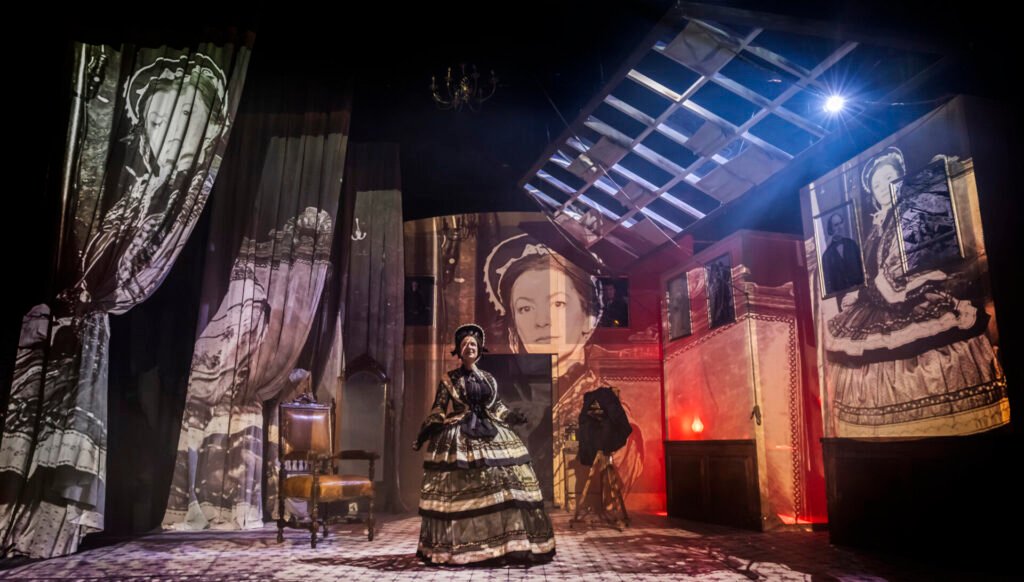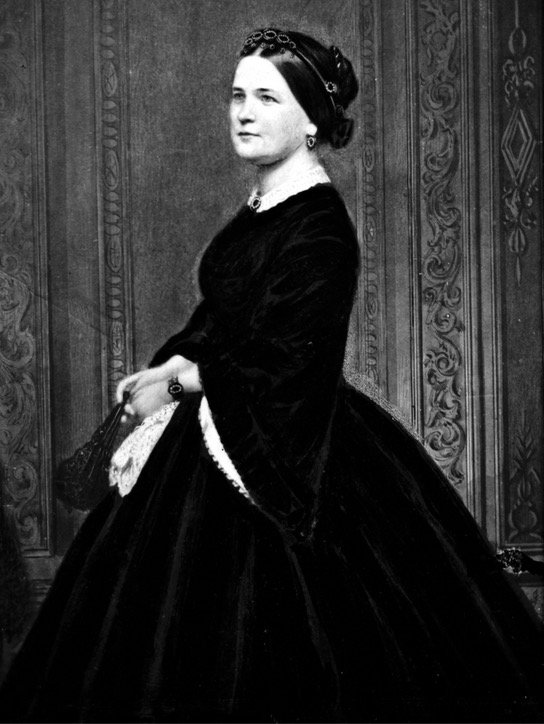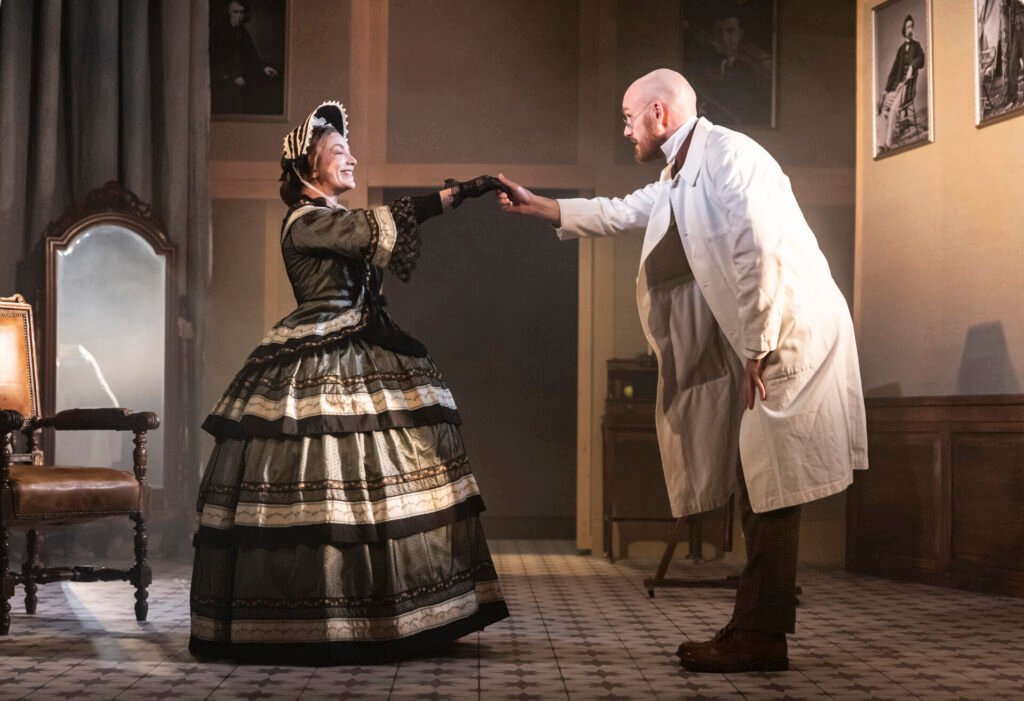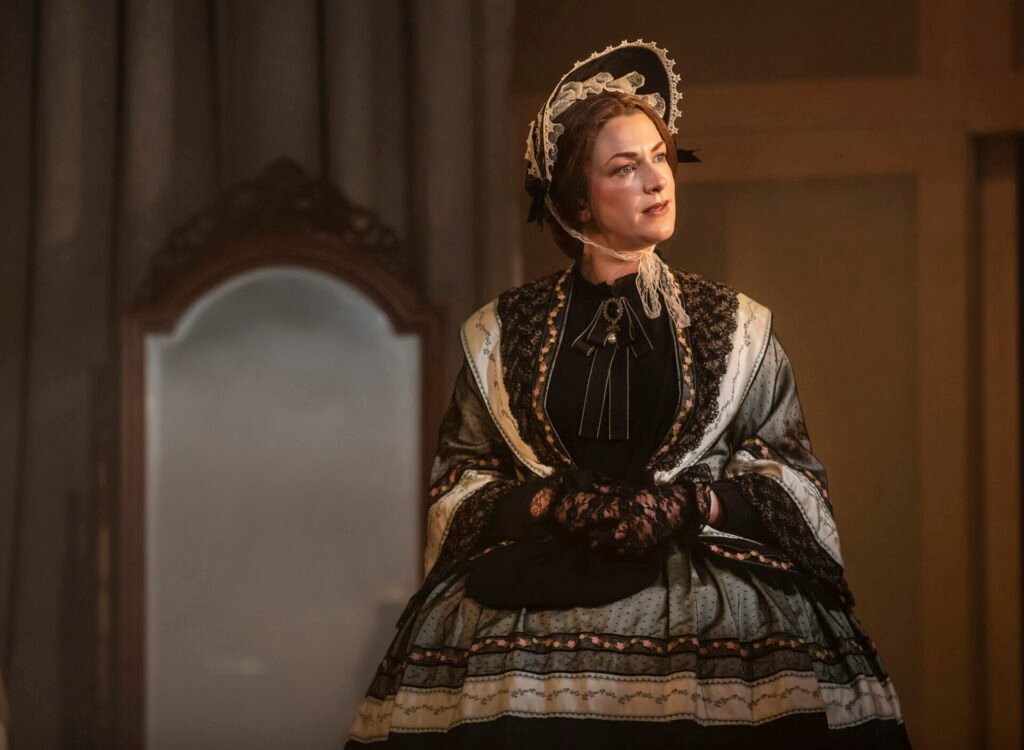Images for Posterity
“Apart from that, Mrs Lincoln how did you enjoy the play?”
Urban myth

How many American First Ladys have as significant histories as their husbands? We may have heard of Martha Washington, know about Eleanor Roosevelt, remember Jackie Kennedy and have noted Melania Trump’s concealing boater at this years’ inauguration. But what about the other 51?
Abraham Lincoln’s wife, Mary Lincoln (Miriam Grace Edwards), was seated beside him in the box in the theatre when he was shot and continues to relive the harrowing moment of his death in her arms. Struggling to come to terms with her dramatic change in status, from First Lady to a common citizen, she insists on being addressed as Mrs President rather than Mrs Lincoln. Adding to her torment are the deaths of three of her four sons and her fraught relationship with her surviving child, who eventually has her committed to an asylum.
She came from an affluent Southern family who had initially opposed her marriage to a struggling young lawyer, Abraham Lincoln. Her opposition to the abolition of slavery was seen as a betrayal by the Confederates and her Southern heritage was a source of suspicion for the Unionists.

Mary Lincoln was one of the most reviled public figures in America. Her extravagant spending during a period of national austerity following the Civil War, coupled with increasingly erratic public outbursts, led to widespread scorn. As her mental state deteriorated, she sought solace through séances in an attempt to reconnect with her deceased children and husband.
Determined to assert her place in history, Mary visits the renowned photographer Matthew Brady (Sam Jenkins-Shaw). Brady, known for his ability to capture not just the likeness but the essence of his subjects, had famously photographed Lincoln in 1860, an image that helped shape his public image en route to the presidency. Brady employs the daguerreotype process, a relatively new photographic method at the time, which produced some of the most striking images of the era.
The stage, designed by set and costume designer Gregor Donnelly, is meticulously arranged to resemble Brady’s studio. The walls are adorned with portraits of previous sitters, while a large camera on a sturdy tripod and a hard-backed chair for posing take centre stage. A small adjacent room is designated for processing images. When Mary arrives, wearing an enormous hoop skirt, she meets Brady, an eccentric character who passionately explains his photographic methods and his mission to reveal the true essence of his subjects.

One particularly unexpected moment in the play involves a verbal exchange between the camera and the chair. It is surprising that this scene did not elicit more laughter from the audience. Both actors deliver believable performances, bringing credibility to their roles under the direction of Bronagh Lagan. However, the play’s subject matter may present a challenge for audiences unfamiliar with American history, making it even harder to fully connect with the characters and their struggles.
It may take more than the skills of an historian, John Ransom Phillips to write compelling drama. Mrs President becomes as much about the photographer as his subject and all her history is narrated by her. The playwright has added abolitionist John Brown and ornithologist artist John James Audubon to the photographer’s experience to his play but as a drama this production sadly doesn’t take off.

Production Notes
Mrs President
Written by John Ransom Phillips
Directed by Bronagh Lagan
Cast
Starring:
Miriam Grace Edwards
Sam Jenkins-Shaw
Creatives
Director: Bronagh Lagan
Designer: Gregor Donnelly
Lighting Designer: Derek Anderson
Sound Designer: Sound Batra
Information
Running Time: One hour 15 minutes without an interval
Booking to 16th March 2025
Theatre:
Charing Cross Theatre
The Arches
Villiers Street
London WC2N 6NL
Box Office: 08444 930 650
Tube: Embankment
Reviewed by Malcolm Beckett
at the Charing Cross Theatre
on 4th February 2025

